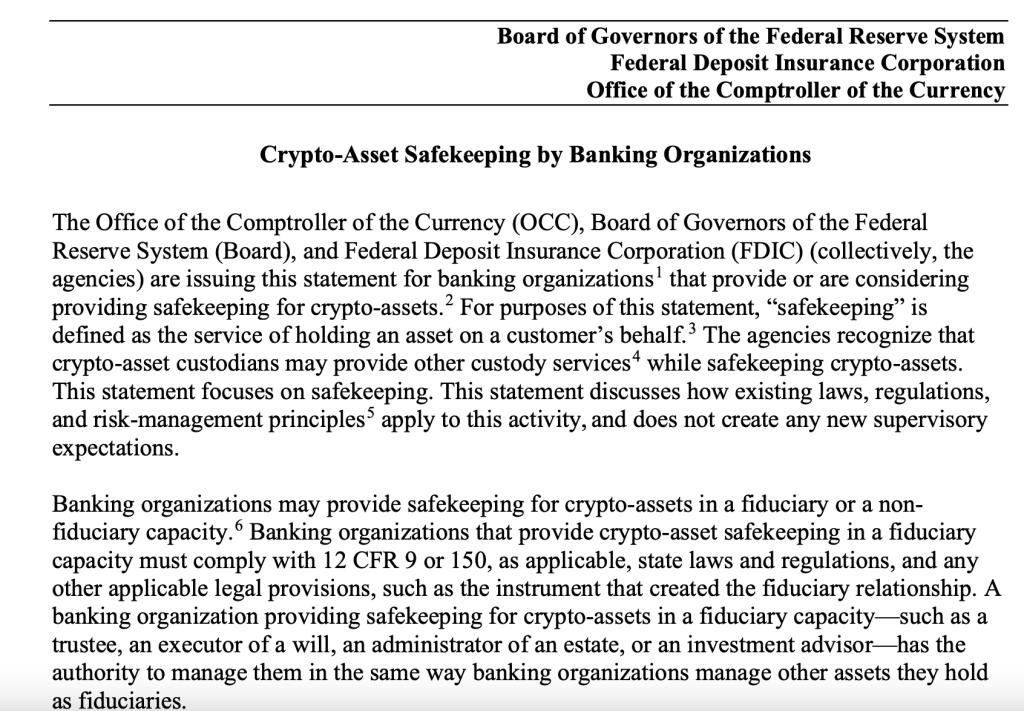Three U.S. federal financial regulatory agencies have issued a joint warning about legal risks and responsibilities that banking institutions may face when providing crypto asset custody services, despite a seemingly more open legal environment.
The joint statement from the Federal Deposit Insurance Corporation (FDIC), Office of the Comptroller of the Currency (OCC), and the Board of Governors of the Federal Reserve System (FED) emphasized potential risks banks will face when entering this field. Although not new regulations, the document is considered an important reference framework, clearly identifying major challenges related to legal, operational, and compliance aspects as more traditional financial institutions want to participate in the crypto asset market.
According to the warning, one of the critical risks is that banks will be legally responsible if customer assets are lost. This issue becomes more complex as many banks are using specialized third-party custody services, such as the collaboration between BlackRock with Coinbase and Anchorage, or the digital asset custody service of BNY Mellon.
The regulatory agencies affirm that banks remain ultimately responsible for activities performed by sub-custodians, especially in cases of cyber attacks.

Additionally, banks are required to have deep understanding of these specific assets, which are complex and highly volatile, while ensuring strict compliance with current regulations such as the Bank Secrecy Act (BSA) and Anti-Money Laundering (AML) regulations. Building an effective internal audit program, including specialized aspects like cryptographic key management and asset transfer process control, is considered mandatory.
This notification comes at a time when Wall Street is showing stronger interest in the crypto asset market. Reliable sources like The Wall Street Journal recently reported that some large banks are in initial discussions about jointly issuing a stablecoin. This movement stems from the perception that the legal environment is becoming more favorable.
Notably, the Federal Reserve recently removed the reputation risk criteria from its supervision process, a factor previously criticized as a tool targeting crypto asset companies.
Other positive signals have also been noted, such as the OCC confirming that banks can trade crypto assets based on instructions from custody clients, or FDIC's legal reconstruction plan expected in 2025 to loosen some current barriers.
Simultaneously, some crypto asset companies like Ripple – the company behind XRP, and Circle – the issuer of USD Coin, are proactively applying for bank licenses, reflecting an increasingly clear convergence trend between traditional finance and the digital asset ecosystem.



